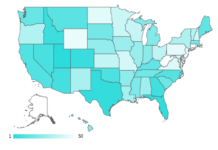Update
On April 16, 2020, the U.S. Small Business Administration (SBA) announced it had exhausted allotted funds for the Paycheck Protection Program (PPP). SBA, which administers the PPP, shut down its application and ceased enrolling new lenders into the program.
_______
Will federal aid programs be enough to help small businesses, such as landscapers, get through the COVID-19 pandemic? The U.S. Chamber of Commerce (USCOC) is concerned. While the Coronavirus Aid, Relief, and Economic Security (CARES) Act Paycheck Protection Program (PPP) provides $349 billion for small businesses to continue to pay their employees and other bills, loan commitments reportedly already exceed the available funds by 10%, according to the USCOC. And the PPP just began accepting applications for small businesses and sole proprietors on April 3. Independent contractors and self-employed individuals can apply beginning on April 10. The program is open until June 30, 2020.
Additionally, an upgraded Economic Injury Disaster Loan (EIDL) program at the Small Business Administration has a $10 billion cap on disaster relief grants, which will support only 1 million businesses and non-profits, says the USCOC.
As a result, USCOC Executive Vice President and Chief Policy Officer Neil Bradley sent a letter yesterday to congressional leaders urging quick action for American small businesses should Coronavirus Aid, Relief, and Economic Security (CARES) Act funding not be sufficient after surging demand for those programs.
“The U.S. Chamber of Commerce thanks you and the entire Congress for quick action to pass the Coronavirus Aid, Relief, and Economic Security (CARES) Act and provide an economic lifeline to families and employers,” Bradley said in the April 7 letter.“I write today to urge you to make clear to America’s small business owners that Congress will act quickly should demand for the programs targeted to small businesses quickly reach their statutory cap.”
“We are sure that you agree that no small business, non-profit, self-employed individual, or independent contractor should be left behind simply because others applied and received loans or grants first. We urge you to reassure small businesses that Congress will quickly increase funding for these programs should they approach their limits,” Bradley said.
On the same day, President Trump addressed the issue at a briefing with members of the White House Coronavirus Task Force. He said he is asking Congress to provide an additional $250 billion for the PPP, reports USCOC.
The USCOC has put together tons of resources for small business owners on grants, loans, and other assistance related to COVID-19 in the Coronavirus Small Business Survival Guide.











![[VIDEO] Dickies®: Discover Workwear That’s Anything But Uniform](https://turfmagazine.com/wp-content/uploads/2023/06/1647663814-4b1a2a7742790a9b1e97a3b963477850192e1d6a9dfba9b07214a77bae25d6e3-d-218x150.jpg)






























![[VIDEO] Dickies®: Discover Workwear That’s Anything But Uniform](https://turfmagazine.com/wp-content/uploads/2023/06/1647663814-4b1a2a7742790a9b1e97a3b963477850192e1d6a9dfba9b07214a77bae25d6e3-d-324x160.jpg)